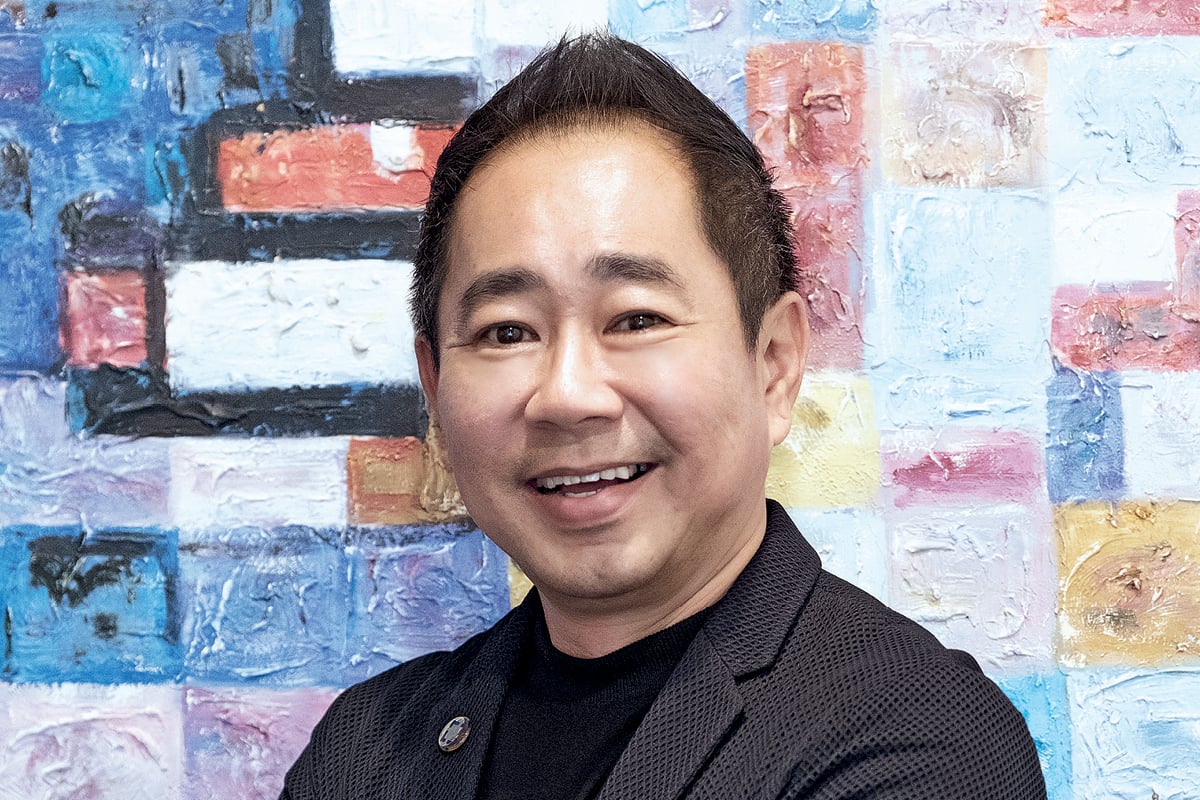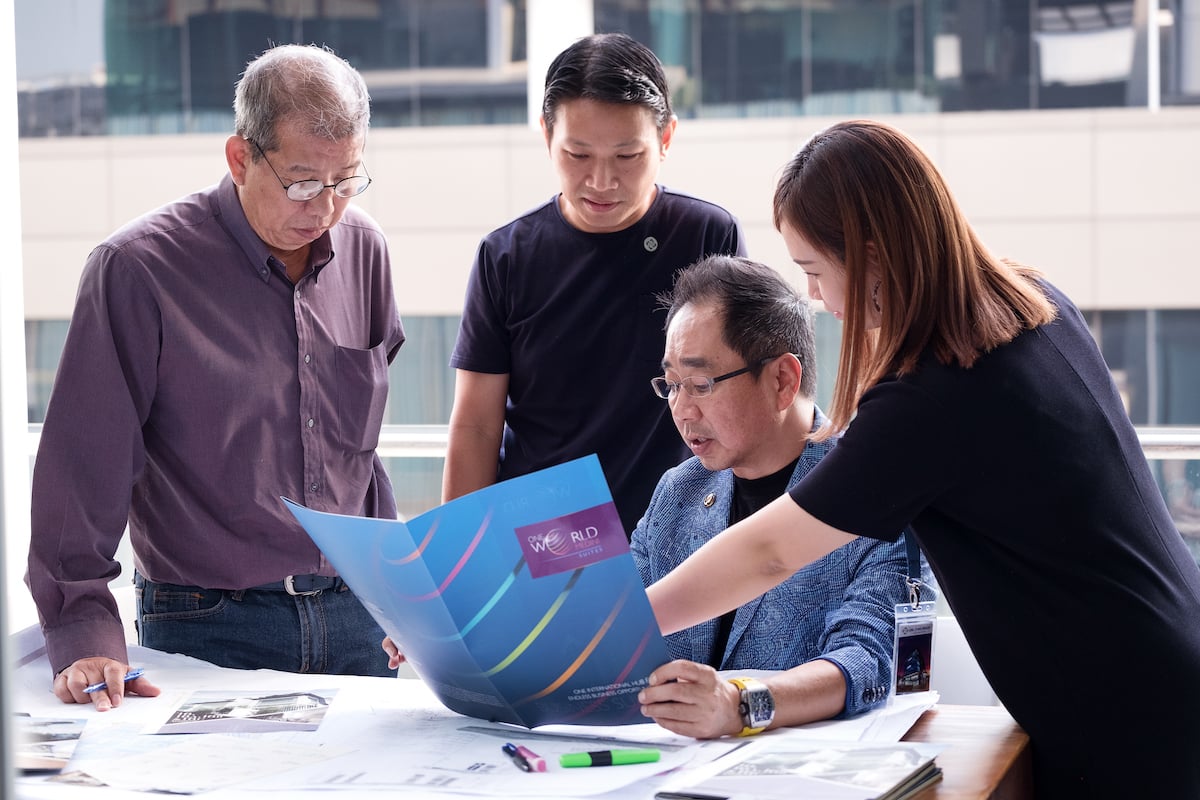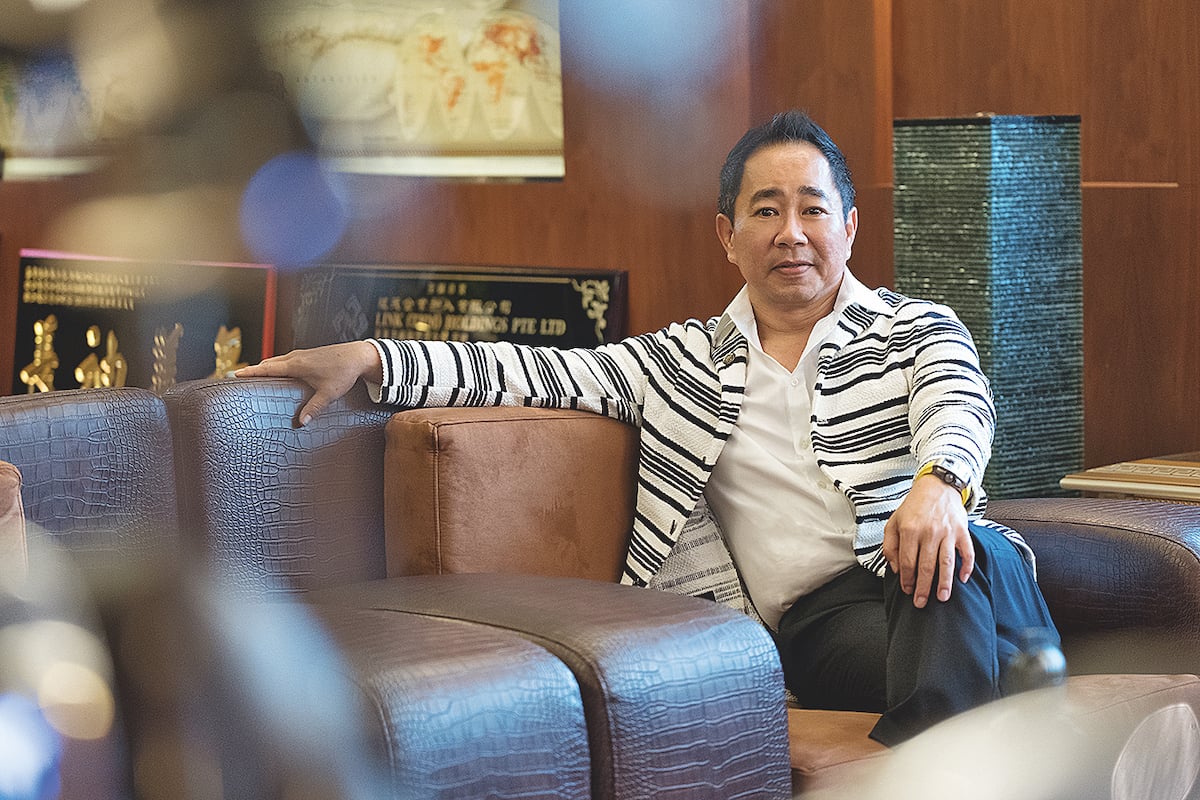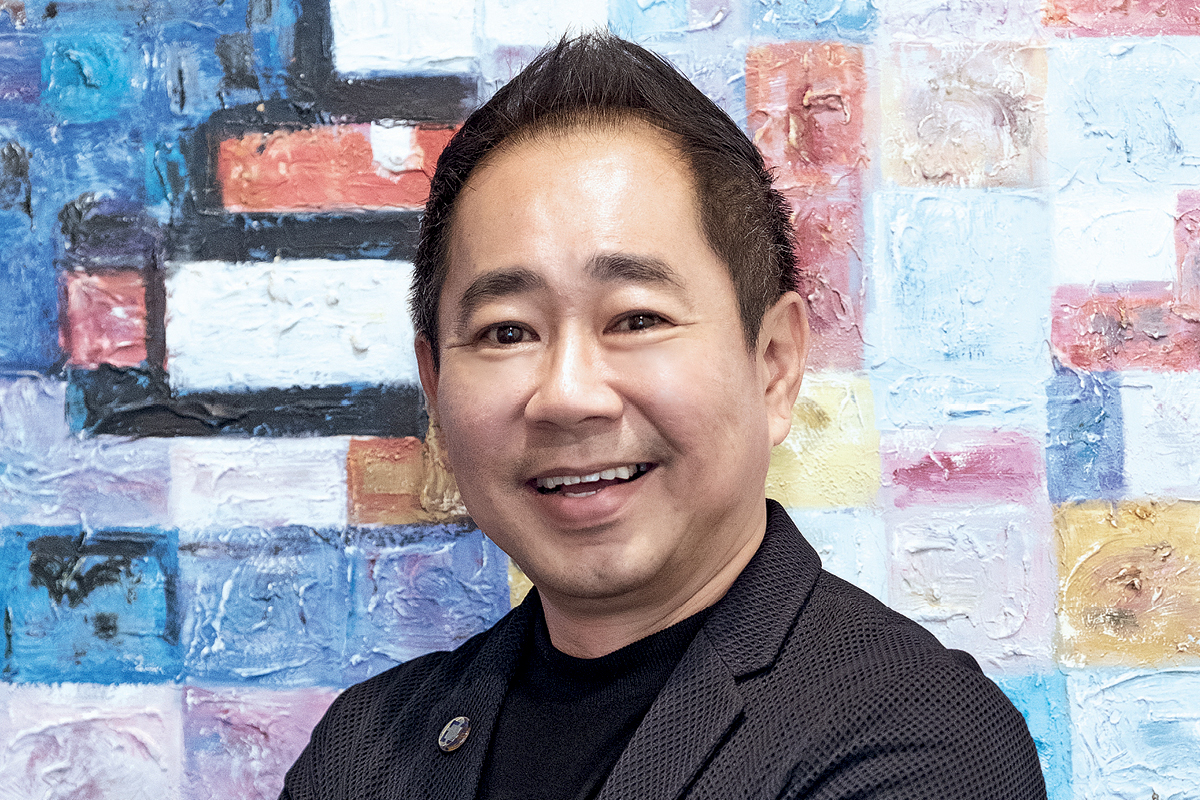There are entrepreneurs who’ve made a career of navigating crises, never letting them get in the way of opportunity. It takes a firm understanding of market trends and a willingness to take risks, but for those who master such a path, success is a sure thing.

One such individual is Kenny Tan, CEO of Link (THM) Group, who, over the course of a 25-year career, has managed numerous businesses across the Asia–Pacific region, handling shifting market fortunes with ease.
The Group began in 1994 as a fashion distributor, partnering with several labels, manufacturing products in Hong Kong. As a husband-and-wife team, Kenny organised distribution to Indonesia, moving luxury leathergoods, writing instruments and jewellery for companies such as MCM Worldwide and Montblanc.
In 1997, the Asian financial crisis struck, precipitated by the revaluation of the Thai baht in July. “Japan at the time was still providing almost 20% of my total top line and Indonesia was providing 50%,” Kenny recalls.
“In October, I felt that something wasn’t right and I decided to pull the handbrake on my distribution to Indonesia. Our business in the country was based on the premise that we would provide customers with the goods and they would pay within 60 or 90 days.”
Had he stayed on course, Kenny’s business would’ve been particularly vulnerable. His caution was quickly rewarded, when Indonesia came to a stop in December. Many suppliers and distributors moving goods into Indonesia were heavily disrupted.
Even though Kenny had pulled out early and avoided the worst of the crisis, Indonesia nevertheless represented 80% of his business. He decided to focus instead on Japan, which was relatively unscathed by the crisis.
“I took that opportunity to convince my partners to sell goods there,” he says. “At that point in time, I saw an opportunity in the Japanese gaming business, where most Japanese pachinko parlours offered their clients a prize in the form of a soft toy or some household product. I convinced some of the operators to offer designer labels – bags, accessories, clothing – rather than basic items.”
Soon, he’d expanded his distribution to about 700 of these retailers, giving him a sizable fan base among industry players. In three months, he’d recouped most of his losses from Indonesia.
Innovative though Kenny’s move was, it wouldn’t see him through the dotcom crash. The spending power of the Japanese public, already weakened by a financial crisis in the early 1990s, was dramatically reduced.
No-one wanted to spend on high-end items anymore, but Kenny was undaunted. As in the wake of the Asian financial crisis, he shifted focus, expanding distribution to Singapore in 2001, focusing on sports brands such as Nike and Adidas. “In the past, sports brands had always approached the market in a safe manner,” says Kenny.
“They only sold their sports equipment bags in colours like black and grey, without offering any products in bright red, white or similarly fashionable colours. I had to convince them to do so. Adidas didn’t buy into the idea but I managed to convince Nike to explore these performance and lifestyle accessories.”
The move ended up providing a huge benefit to Nike. Where previously that product line had added 6–7% to Nike’s top line, Kenny says, it has now contributed to a turnover of about 90% of their total top line. Seeing this success, Adidas soon followed suit, moving into distribution of accessories and lifestyle bags.

Proving that an entrepreneur’s work is never done, Kenny began to diversify again in 2004. Link (THM) started to move into property development, seeing it enter its most successful and best-known iteration.
Singapore property prices were at their lowest and, while there was no clear sign of economic recovery there, prices in Hong Kong were improving. Based on his experience in fashion distribution, Kenny had noticed Hong Kong was often one step ahead of Singapore and he started to invest in Singaporean property.
“That’s why I got into the business in 2004. Six months later, in June 2005, Singapore’s property sector picked up and the demand also increased,” says Kenny. Today, the property business is consistently stable and prices are staying down, but the demand is still there. We’re sticking with the property business.”
Further diversification ensued – with experience in retail, he saw the growing value of ecommerce and the sector’s demand for logistics and transport.
Many small companies had entered the field but didn’t have the resources or connections to thrive in the market – for example, Pan-Pacific Van and Truck Leasing, which Kenny acquired in 2017.
Since then, he’s increased the company’s fleet from 520 to 1,200, picking up the business at a fast pace, and adding yet another achievement to his list.
“I have the interest and passion necessary to get through crises, because I love this work so much,” Kenny reflects. “I’m a guy who came from nothing. I set up my business in October 1994 with S$27,000 (about US$20,000).”
“I’m not a rich man, but I’ve taken this opportunity to learn a lot from industry people along the way. Today, my focus is on growing the business across different areas and trades, while growing my people at the same time.”
“My focus is on growing the business across different areas and trades, while growing my people at the same time.”
Having gone through countless transitions, Link (THM) Group has successfully completed 50 projects, and the team has taken an active role in each stage of development and design.
One World Medini represents a soon-to-be jewel in Link (THM)’s crown – located in Iskandar, right near one of Singapore’s two bridges to Malaysia, the complex promises to service tourism, retail, business and residential.
Its 100,000 square metres of retail space and proximity to Pinewood Studios, Legoland and Puteri Harbour will likely make it a prime choice for tourists. “Land is always valuable,” says Kenny.

“That’s why today we’re still focused on residential land and housing. But then again, I’m a guy who has gone through crises. That’s why I like to diversify so much. In these 15 years, besides residential projects, we’ve accumulated experience in industrial developments in Singapore. We’ve also built commercial offices throughout the city. We still own those properties, and we’re renting them to many big companies.”
“I’m a guy who has gone through crises. That’s why I like to diversify so much.”
With Singaporean home prices expected to improve in 2019, the government has introduced measures to control the growth and pricing of the property market.
Kenny says it’s healthy for the sector, as it will ensure sustainability. In his words, it’s better than “an overnight wealth increase followed by an overnight wealth decrease”.
Meanwhile, Kenny wants to keep his team ahead of the industry curve. Given the high cost of labour in Singapore, he invests in the skills and training of his team, and the company’s technological aptitude.
To this end, Kenny sends his team on excursions to build up their capabilities; such an investment is representative of the importance he places on the Link (THM) team.
“Why, as the leader of the company, do I feel I can handle all these different trades?” he asks. “It’s because of the people. They’re committed. Our people are willing to contribute and they’re improving every single day. That’s where we’re looking at improving the business, so we can help drive the business.”
Proudly supported by:




